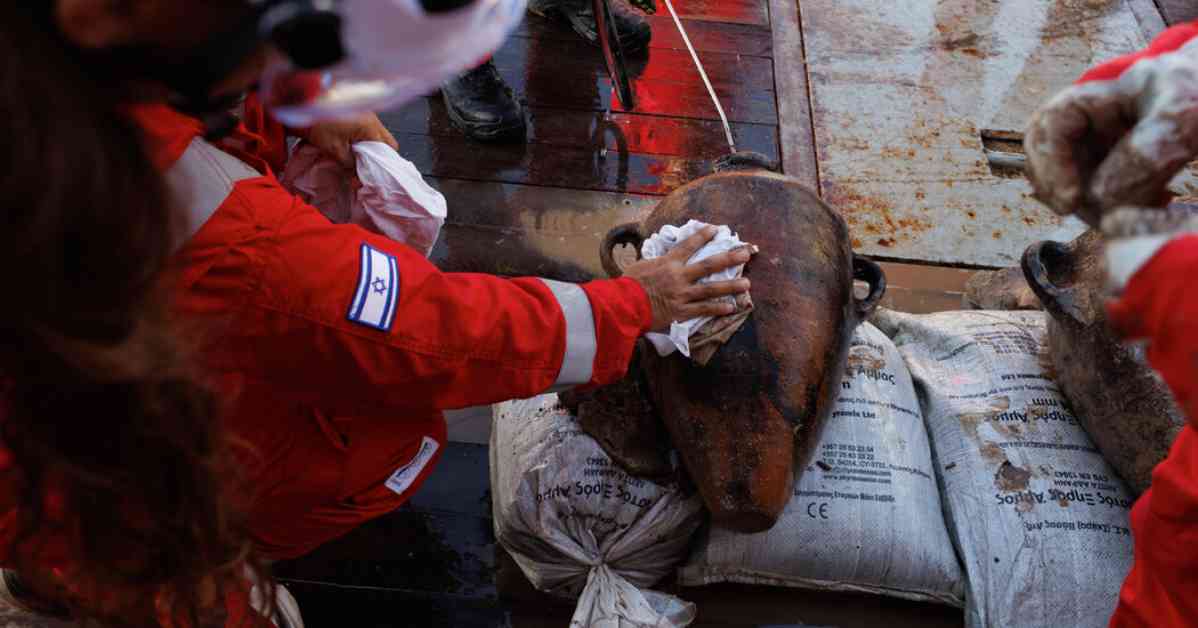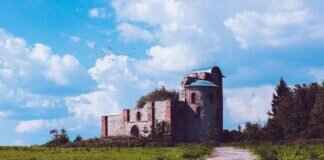Deep beneath the surface of the Mediterranean Sea, an ancient shipwreck has been discovered, revealing a deep Bronze Age time capsule. The Israel Antiquities Authority made the exciting announcement, stating that this shipwreck is the oldest ever found in deep water and possibly the oldest complete wreck ever discovered.
Preliminary examinations of two clay jars, also known as Canaanite amphorae, suggest that the merchant vessel sank between 1400 B.C. and 1300 B.C. during a time when the Egyptian empire was at its peak. The ship, estimated to be between 39 to 46 feet long, holds significant historical value as it provides insight into the trading routes and practices of the ancient world.
The exact cause of the ship’s sinking remains a mystery. However, footage captured by a remotely operated submersible robot shows that the vessel settled at the seabed without capsizing, preserving the hundreds of storage jars in its hold. This discovery is a rare find, as shipwrecks from the Bronze Age period are extremely scarce, with only a few others known to exist in the Mediterranean.
The shipwreck was located last summer during a survey conducted by Energean, a company specializing in natural gas exploration. The area where the wreck was found had been a point of contention between Israel and Lebanon until a recent agreement put it under Israeli control. This discovery sheds new light on ancient maritime trade and provides archaeologists with valuable artifacts to study.
Experts in the field, such as Cemal Pulak from Texas A&M University, emphasize the significance of this find, noting that Bronze Age shipwrecks are crucial for understanding the history of seafaring civilizations. The intact state of the cargo jars offers a rare glimpse into the daily life and commerce of ancient mariners.
As researchers continue to investigate the contents of the shipwreck, more insights into the Bronze Age trading networks are expected to emerge. This discovery underscores the importance of underwater archaeology in uncovering the mysteries of the past and preserving our shared cultural heritage.














